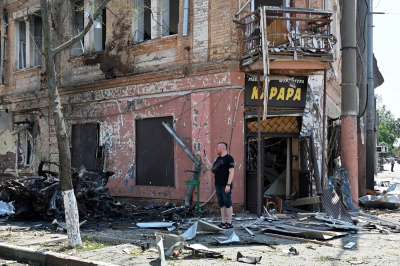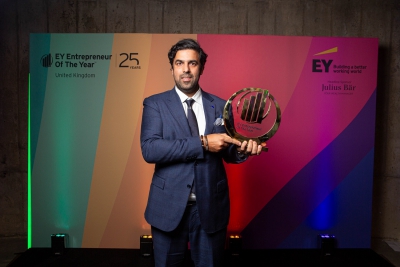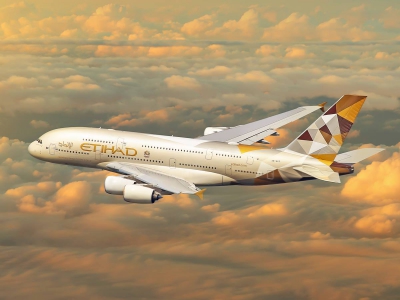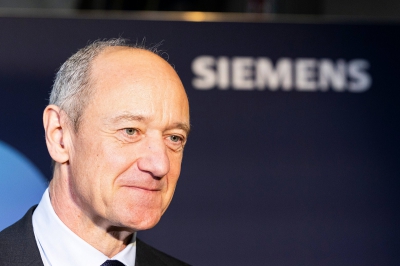As more global cryptocurrency exchanges, Web3 startups, infrastructure providers, venture capital firms, legal advisors, and DeFi projects operate in the region, and the regulatory environment continues to evolve, the Middle East is poised to become the next A central hub for the development of blockchain and decentralized finance, providing significant opportunities for companies and investors seeking to mine the future of digital assets.
The United Arab Emirates leads the Middle East’s Web3 regulatory ecosystem
The UAE has a sizable presence in the Middle East, receiving $34 billion in cryptocurrencies between July 2023 and June 2024, ranking it third in the region after Turkey and Lebanon.
Abu Dhabi Global Market (ADGM) was the first regulator in the world to develop a cryptocurrency framework in 2018, followed by Dubai’s decision to establish the Virtual Assets Regulatory Authority (VARA) in 2022.

The Virtual Assets Regulatory Authority (VARA) of Dubai plays a key role in this regulatory expansion. Established in 2022, VARA is the first independent virtual asset regulator in the world, attracting global attention while shaping local markets.

Cryptocurrency investment is also expanding rapidly, with numerous venture capital funds and blockchain companies setting up offices in the UAE. These include Chainalysis, which opened a regional headquarters in Dubai in May 2023.
The UAE is also supporting the global web3 industry through a dedicated ecosystem. One such example is the DMCC Crypto Center, developed by DMCC (Dubai Multi Commodities Center), the leading trade hub and business district in the world.

Saudi Arabia: The fastest growing cryptocurrency economy in the Middle East
Compared with the relatively mature Web3 ecosystem in the United Arab Emirates, Saudi Arabia has become the fastest-growing cryptocurrency economy in the MENA region for the second consecutive year, with a year-on-year growth rate of 154%. Focus on blockchain innovation, central bank digital currency (CBDC), gaming and fintech advancements continues to drive this rapid expansion in Saudi Arabia.
Several major traditional financial institutions (TradFi), including Rothschild and Goldman Sachs, have recently opened branches in Riyadh, with TradFi firms increasingly turning to cryptocurrencies as adoption accelerates. For example, Goldman Sachs plans to launch three tokenization projects globally.

Following closely behind in terms of growth is Qatar, which is currently the second fastest growing market in the region with 120% year-on-year growth. The country’s regulatory stance is also evolving to support this trend. In September, Qatar Financial Center (QFC) launched a new digital asset regime that provides a legal and regulatory basis for the development of digital assets, asset tokenization and trusted technology infrastructure.

The Saudi market, while not as mature as the UAE, has become a hub for Web3 startups seeking investment, backed by its large pool of capital.
In 2023, the kingdom received 54% of total venture capital (VC) funding across the five major MENA countries, according to recent report on Saudi Arabia from Adaverse. "The growing momentum stems from factors driving the development of a vibrant startup and investment ecosystem, which is particularly attractive to Web3 companies looking to take advantage of strong funding opportunities," the report states.
However, the report also acknowledges that the Saudi Web3 industry faces significant obstacles, including regulatory uncertainty. The rapid pace of technological advancement in the industry has exceeded the ability of regulators to keep up, and Saudi Arabia is no exception.
Türkiye: MENA’s largest cryptocurrency market
Turkey is not only the largest cryptocurrency market in the MENA region, but also the seventh largest globally, with a cryptocurrency value of $13.68 billion between July 2023 and June 2024.
In the Middle East and North Africa (MENA) region, stablecoins and altcoins are increasingly gaining market share over more traditional assets such as Bitcoin and Ethereum. This trend is particularly evident in Turkey, where stablecoin trading volumes are significantly higher.

Stablecoins have been accounting for the majority of crypto assets purchased in Turkish lira. Crypto assets purchased with Turkish lira reached nearly $6 billion in March. This reflects a common trend in countries with unstable currencies, where demand for non-volatile assets such as the U.S. dollar and U.S. dollar-pegged stablecoins is high.
While Ethereum usage remains stable across the region, it is below the global average, with Turkey seeing the highest participation. Meanwhile, Israel and Saudi Arabia have shown considerable interest in altcoins, well above the global average, reflecting their higher risk tolerance and interest in assets outside of the major cryptocurrencies.
Türkiye recently amended its Capital Markets Law to include crypto-assets, aiming to enhance market integrity and consumer protection in the crypto ecosystem.
These Web3 giants have settled in the Middle East one after another
In recent years, the Middle East has become a vibrant hub for cryptocurrency and Web3 companies, attracting global players ranging from exchanges to startups, venture capital firms, and legal advisors. These companies are increasingly operating in the region as the regulatory environment in countries such as the United Arab Emirates, Saudi Arabia and Bahrain becomes more favorable.

The region has seen an influx of major cryptocurrency exchanges, with Binance leading the way. Other global players such as Bybit, OKX, and Crypto.com have also made major inroads into the region.

The growing Web3 ecosystem in the Middle East is further supported by the addition of major infrastructure providers and blockchain protocol developers. ConsenSys, a leader in the Ethereum ecosystem, enters Dubai to provide blockchain consulting and development tools to help enterprises adopt Ethereum-based technology. Similarly, Chainlink, known for its decentralized oracle network, and Filecoin, a decentralized storage provider, have both established businesses in Dubai, targeting the rapidly growing blockchain and DeFi communities in the region. These companies not only enhanced the Web3 capabilities in the region, but also promoted greater cooperation between local enterprises and international participants.
Web3 summits and activities to attract talent flow
Under the booming ecosystem, many global company executives, startups and thought leaders are flocking to the region. A key part of this transformation is hosting a series of impactful events and summits dedicated to blockchain, cryptocurrency and Web3 technologies. These activities have attracted leading experts, developers, entrepreneurs, and investors, and are crucial in shaping the blockchain landscape in the region.
The Future Blockchain Summit in Dubai is one of the largest and most influential gatherings in the region. The summit is held annually at the Dubai World Trade Center, usually in October or November, as part of the wider GITEX Technology Week, one of the world's largest technology expos.

The World Blockchain Summit, held annually in Dubai and Riyadh, is another important event that brings together global and regional players in the fields of blockchain, NFT and Web3 technologies. Typically held in March and September, the summit includes presentations, panel discussions and an exhibition, providing valuable networking opportunities and insights into the latest trends in blockchain and cryptocurrency.
Famous large-scale summits such as World Blockchain Summit, Crypto Expo Dubai, and Fintech Summit Middle East are also held in the Middle East. As more and more hot money flows into the Middle East, its popularity and number of activities are also increasing day by day.















